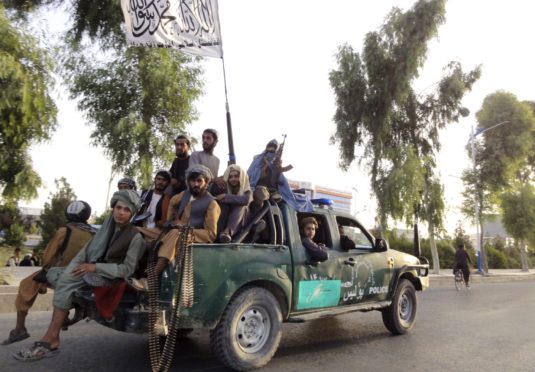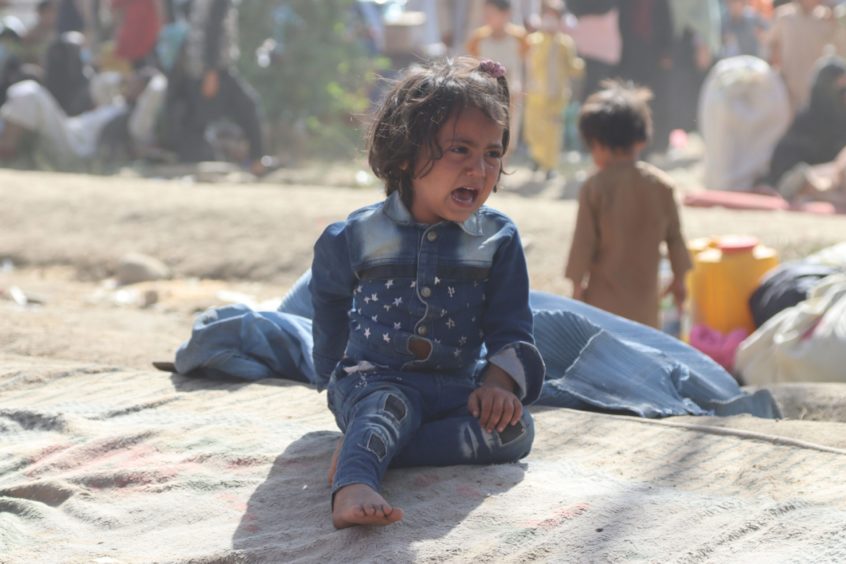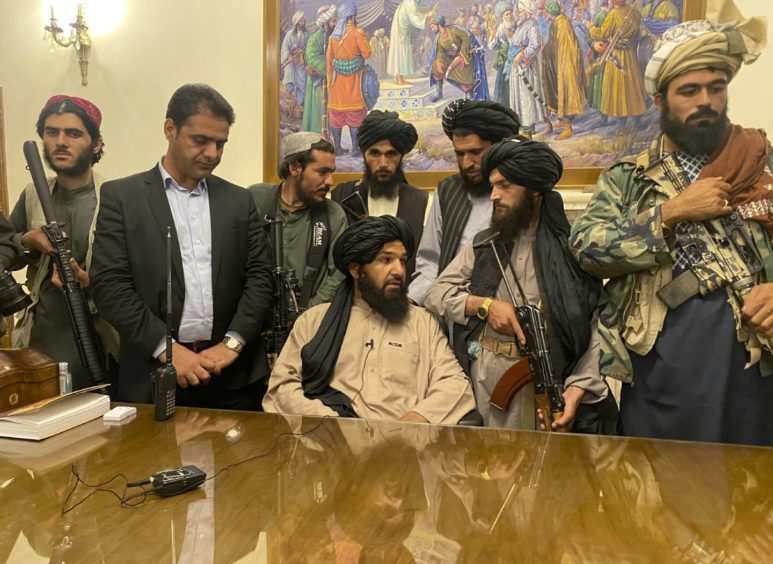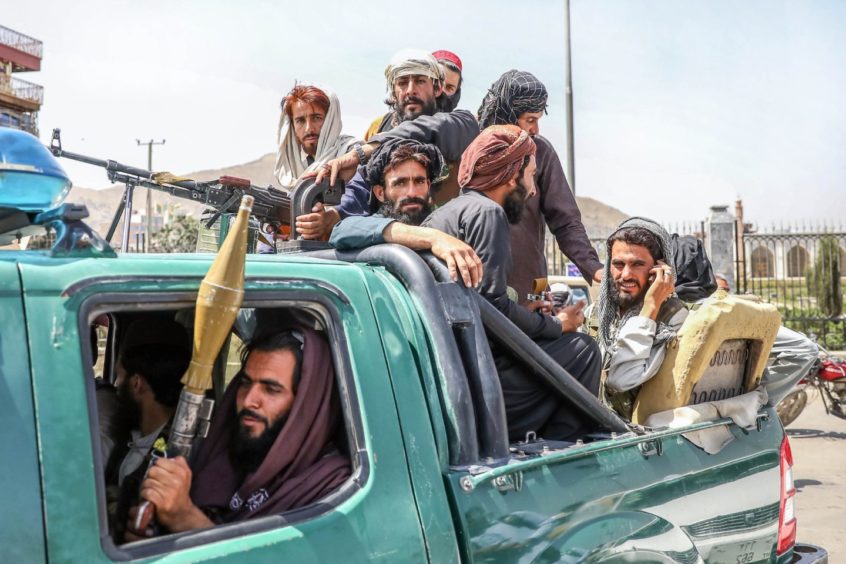The scenes emerging from Kabul and the rest of Afghanistan over the past few days have come as a shock to us all.
The sudden collapse of the government that was backed heavily militarily and financially by western powers is hard to fathom.
It is especially hard for those who have given so much to that mission.
Over the years I have spoken to those who served in Afghanistan as well as their friends and families across Tayside and Fife as well as elsewhere in the UK and beyond.
Their sacrifice was significant in terms of lives lost and injuries, physical and mental, that never go away.
However, it is the people of Afghanistan who will suffer most.
There are already credible reports emerging from Afghanistan of murder and other human rights abuses.
The consequences for those who remain, especially women and girls, will be devastating.
We know from experience that the Taliban have no respect for the basic freedoms that we take for granted.
This is a dark time for those left behind.
The collapse of a 20-year mission in a matter of days is all the more astonishing given the trillions of dollars that have poured into the country over the past two decades alongside significant military and diplomatic efforts.
For all that we could not even manage an ordered evacuation of the country.
This is a very public and visible failure of leadership unfolding in a matter of days.
We must learn from past mistakes
Over the past few years, we have also witnessed failures in military interventions in Iraq, Syria and Libya for instance.
What makes things worse are that mistakes are too often repeated.
As a member of the Foreign Affairs Committee, we conducted several inquiries including into the disaster that had unfolded after UK / French led intervention in Libya.
It was striking that many of the mistakes that had been made by policymakers in Iraq had been repeated less than a decade later in Libya.
Too often military intervention comes on the back of hasty decision-making processes as a consequence of short-term political objectives
We couldn’t even visit the country due to security meeting the UN recognised government in next door Tunisia instead.
The catastrophe that is unfolding in Afghanistan should provide a re-set in how we conduct our foreign policy.
All too often military intervention comes on the back of hasty decision-making processes as a consequence of short-term political objectives.
One of the most serious decisions any politician can ever take is over whether or not to vote for war.
I can remember back in 2015 as a new MP agonising over backing military action against Daesh in Syria.
One of the lessons we must learn is that there are no easy solutions.
Post-conflict stabilisation takes decades.
The EU, USA and UK among others are still investing significant resources in stabilisation efforts in the Western Balkans after the conflicts that ravaged that beautiful part of the world in the 1990s.
Re-building efforts cannot be left to chance which means long-term efforts are required.
Much of the hard work is being done when the area affected by conflict is not in the spotlight.
Reconstruction efforts needed attention and investment when the world is not looking.
Aid cuts will hinder Afghanistan response
The decision to cut the UK aid budget must be revisited as soon as possible.
This means cuts in many of the organisations who do much of the peace-building work.
The heroic efforts of organisations such as the HALO Trust, Mercy Corps International and Conciliation Resources among others make peace a reality.
You need to be able to rely on the expertise, advice and insight of the experts who know a region and can speak the language
Yet it is these organisations whose work will be curtailed, just when it is most needed, due to the short-term decision to cut the aid budget.
Similarly, the Foreign Office has seen a lack of investment in recent years.
Politicians make decisions but officials advise.
You need to be able to rely on the expertise, advice and insight of the experts who know a region and can speak the language.
Brexit has left Britain isolated
The UK is also hobbled by sitting outside the European Union.
In an age where western democracies are seeking to find ways to work more closely together the UK stands alone in pursuing greater unilateralism.
The Brexit project has left the UK more isolated from its partners than during any other period in the post-war era.
Our friends and neighbours work closely together, pulling and sharing resources.
Brexit has removed resources, partnerships and goodwill that are badly needed in a Europe that is increasingly inter-dependent in foreign policy terms.
No European country can face the challenges posed by post-conflict reconstruction alone.
The EU is almost alone in having the soft power, institutional and financial muscle to help with reconstruction on a long-term basis.
European countries working together can be a soft superpower with the resources to rebuild societies in the aftermath of conflict.
Afghanistan refugees will seek shelter here
We do not just a reset in our foreign policy but also at a domestic level.
We cannot be indifferent to the plight of refugees who seek shelter on our shores.
We're ready @scotrefcouncil to work with @NicolaSturgeon and @scotgov to save lives and deliver on #Scotland's longstanding tradition of reaching out to those fleeing persecution and human rights violations. #AyeWelcomeRefugees https://t.co/Lb7gnuR2FD
— Sabir Zazai 🧡 (@sabir_zazai) August 16, 2021
All too often we focus and care about issues while they are on the front pages.
Failures of UK foreign policy in Iraq, Libya and Afghanistan have an impact of those desperately seeking shelter.
None of this is a reflection on the many excellent diplomats and other officials.
Apparently the UK Ambassador to Afghanistan (Sir Laurie Bristow) held out at the Embassy to get his people out first.
And now he's at the Kabul airport getting Afghan interpretors out one by one.
Extraordinary courage. pic.twitter.com/uhM4UciMqw
— Mike Gibbs🏳️🌈 (@Mikeggibbs) August 15, 2021
The British Ambassador to Kabul, Lawrie Bristow, has bravely remained in the airport personally processing visas along with a small team.
They will need to be part of that longer-term discussion.
For now, it can wait the priority must be to evacuate as many as people as possible and provide shelter to Afghans who need it.
Stephen Gethins is a former Member of the House of Commons Foreign Affairs Committee and a Professor of Practice at the School of International Relations at the University of St Andrews. His book, Nation to Nation: Scotland’s Place in the World was published by Luath earlier this year.














